|
This year the 2017 Nobel Peace Prize was awarded to the International Campaign to Abolish Nuclear Weapons. This honor harkens back to the 1995 Nobel Peace Prize jointly awarded to the Pugwash Conferences on Science and World Affairs and Joseph Rotblat. The first Pugwash Conference of 22 scientists from both sides of the Iron Curtain was held in 1957 at Thinkers Lodge in Pugwash. This conference was hosted by Cyrus Eaton, my grandfather, who was born in Pugwash River and later became a successful industrialist in the States, a philanthropist, and an advocate for peaceful relationships between countries of disparate ideologies. That initial conference was the catalyst for the Pugwash Conferences of Science and World Affairs that continue to meet annually around the world. 60 years later, the 1957 Conference inspired the 2017 Conference on Climate Change at Thinkers Lodge.
Joseph Rotblat visited Pugwash many times, always staying at Thinkers Lodge. Born in Warsaw, Rotblat’s family suffered under the Nazi crackdown on Jews. Despite extreme poverty and discrimination, he attended university and eventually worked on the Manhattan Project. Learning that the atomic bomb was not being developed by Nazi Germany, he spoke against the creation of this deadly weapon; on moral grounds, he quit the project. In the 1950s, Russia and the United States tested hydrogen bombs, many times more deadly than the atomic bombs dropped on Hiroshima and Nagasaki. Today, North Korea is testing these deadly atomic and hydrogen devices. President Trump’s unbalanced tweets stoke the animosity between the nations. Additionally, Trump’s rhetoric threatens to undo the Iran Nuclear Treaty. Two Islanders were part of 22 "thinkers" asked to gather in Pugwash, Nova Scotia to discuss ways to combat climate change. Interview with Chris Ortenburger, PEI community organizer. Listen to interview. CBC - PEI
PUGWASH, N.S. — At a time when Canada’s environment watchdog is advising the federal government to put its plan to cut greenhouse gases and adapt to climate change in place, a gathering took place in Pugwash, N.S. to look at the issue from an Atlantic Canadian perspective.Gordon Slade, the chair and ocean advisor with the Shorefast Foundation based out of Fogo Island, was the lone participant from Newfoundland and Labrador invited to the Pugwash Conference on Climate Change that took place recently.
Through his work on “The New Ocean Ethic” project — looking at the health of ocean and creating harmonious and sustainable relationships with the ocean — Slade was invited to attend as one of 22 global and regional “Thinkers” representing all aspects of community life. They gathered for two and a half days of “intense, intentional and focused conversation on the greatest threat facing humankind, Global Warming.” “We are not doing enough to prepare,” Slade said. “It’s a difficult subject, and some people haven’t accepted that global warming is a threat. . . people need to start thinking that this is real.” With the belief that local action is the best path in creating a roadmap for a change model for the world, the retreat’s mission was to move conversation to “doing” by developing community-based action plans, with drawdown potential, that hold the capacity to face and manage life in a very different world where impacts such as wildfires, floods and extreme weather events are becoming the norm with devastating, even life-threatening, results. Gordon referenced the devastation areas of this province experienced during Hurricane Igor in 2010 and most recently the impact hurricanes had on islands in the Caribbean. When Slade asked if Newfoundland and Labrador could ever expect to see a Category Type 5 hurricane, the answer was yes. "The Centre for Local Prosperity is a registered Nova Scotia non-profit organization promoting local economic solutions for rural communities throughout Canada. The Centre organizes major conferences and small community based working sessions and we conduct evidence-based studies that often lead to community consultation and implementation. We draw on examples throughout the world and right here at home. Our work draws its strength through citizen, business and local government collaboration. We encourage practical, innovative and experimental community development initiatives and sustainable business practices that focus on balancing community purpose with business and industry profit. The Centre draws on the work and wisdom of Wendell Berry, Jane Jacobs, Fritz Schumacher, Susan Witt and others who understand how best a local community can begin to re-localize and regain control of their own economic future. We network with leading voices in Atlantic Canada and internationally in order to help guide communities and organizations in finding ways to implement new economic models that address climate change, declining population, and global supply disruption. We work with local municipalities in assessing community needs and in drafting strategic plans that provide economic and democratic solutions to fulfill those needs. The Centre for Local Prosperity welcomes discussions on how our Centre staff can assist you and your community in developing economic plans, strategies, and policies that advance your long-term future." International Campaign to Abolish Nuclear Weapons Wins Nobel Peace Prize Billy Perrigo Updated: Oct 06, 2017 5:21 AM ET The International Campaign to Abolish Nuclear Weapons (ICAN) has won the Nobel Peace Prize 2017. ICAN was a vital actor in bringing the Treaty on the Prohibition of Nuclear Weapons to the United Nations, where it was signed by 122 countries. The accord was largely symbolic as none of the world's nuclear-armed nations signed it. The Oslo-based Nobel committee said on Friday that ICAN "is receiving the award for its work to draw attention to the catastrophic humanitarian consequences of any use of nuclear weapons and for its ground-breaking efforts to achieve a treaty-based prohibition of such weapons," as it warned of the current increased risk of a nuclear conflict. "The next steps towards attaining a world free of nuclear weapons must involve the nuclear-armed states," it continued. "This year’s Peace Prize is therefore also a call upon these states to initiate serious negotiations with a view to the gradual, balanced and carefully monitored elimination of the almost 15,000 nuclear weapons in the world." In a Facebook post shortly after the announcement, ICAN said it was a "great honor" to receive the prize. "This is a time of great global tension, when fiery rhetoric could all too easily lead us, inexorably, to unspeakable horror. The spectre of nuclear conflict looms large once more. If ever there were a moment for nations to declare their unequivocal opposition to nuclear weapons, that moment is now." "This award shines a needed light on the path the ban treaty provides towards a world free of nuclear weapons," they concluded. "Before it is too late, we must take that path." The prize, established in 1901, is awarded annually to the person or organisation that has "done the most or the best work for fraternity between nations, the abolition or reduction of standing armies and for the holding and promotion of peace congresses," according to the will of its founder, Swedish industrialist Alfred Nobel. boulderganic from Boulder Weekly
May 25, 2017 RAN works to protect lands such as the Leuser Ecosystem in the Bangkung district of Sumatra, Indonesia.Paul Hilton for RAN With each passing day, global warming seems more like a death sentence for the Earth. Rainforests are shrinking, carbon emissions are rising and many corporations are consistently putting profits before people. Even theoretical physicist Stephen Hawking recently gave humanity 100 years to find a new planet. There’s a certain Day After Tomorrow vibe around the topic, running down the doomsday clock with each new pipeline constructed. But environmental agencies around the world are diligently working to curb global warming and infuse the future with some hope. On May 30 at the Dairy Arts Center, Rainforest Action Network (RAN) hosts Reversing Global Warming: It’s Possible! featuring RAN Executive Director Lindsey Allen and Project Drawdown Director Paul Hawken. RAN has spent the past three decades fighting to preserve the rainforest, protect the climate and uphold human rights all over the world. It’s challenged companies through direct action and influenced many to change their practices. The organization has taken on large financial institutions and corporations like Home Depot, Pepsico and Citibank. It even went after the Disney Corporation when it was causing major forest destruction to make its paper products. “It took us getting Mickey and Minnie Mouse handcuffed in front of their business office and chained to their gate to get [the Disney Corporation’s] attention,” says Christopher Herrera, director of communications for RAN. “But once we got their attention, they started working with us and we helped them develop a policy. We helped them become a leader in stopping deforestation.” Joining RAN at the Dairy event is Project Drawdown, an organization working to shed light on the various actions rallying against climate change. Director Paul Hawken recently released a book detailing these practices called Drawdown: The Most Comprehensive Plan Ever Proposed to Reverse Global Warming. The book, which is a New York Times bestseller, covers 100 different solutions that have all been researched and analyzed and are working toward one of the ultimate goals of Project Drawdown: reversing the buildup of atmospheric carbon within 30 years. The list of viable actions includes composting, educating women and girls, farmland irrigation, forest protection, green roofs, bio plastic and more. “What we’re trying to do here is say, hey, let’s create this collection of things that are happening, that the world is already doing, and put this together and model it and really assess it, and show the world what it looks like when you knit that tapestry together,” says Chad Frischmann, research director with Project Drawdown. Brock Chisholm poses with photo of his granduncle, Dr. Brock Chisholm attending the Pugwash Conference on Chemical and Biological Warfare.
MEDIA RELEASE
October 1, 2017 – FOR IMMEDIATE RELEASE – 60th Anniversary Pugwash Conference on Climate Change - A Powerful Roadmap for Small and Rural Communities Pugwash, Nova Scotia, Canada “We know there are no more chances. It is not going away, and today is the time to get it right in dealing with climate crisis,” said Andy Horsnell, Chair, Centre for Local Prosperity, at a recent Thinkers Retreat. “Our world will live with it for the rest of our history, just as we have lived with the 20th century legacy of the threat of nuclear war. Our shared duty now, as one people, is to protect and repair Mother Earth, even as we prepare ourselves for its future unknowns.” Armed with this conviction, 60 years post the inaugural Pugwash Thinkers Retreat on nuclear disarmament, 22 global and regional Thinkers, representing all aspects of community life, gathered for two and a half days of intense, intentional and focused conversation on the greatest threat facing humankind, Global Warming. Atlantic Canada is starting now, with a localized bottom up attitude, to create a change model for the world. Believing local action the best path, the retreat’s mission was to move conversation to ‘doing’ by generating a roadmap to develop community-based action plans, with drawdown potential, that hold the capacity to face and manage life in a very different world. The diversity of participants—scientists, First Nation representation, municipal government, artists, Project Draw Down Director and others—powered a cross pollination of thoughts and ideas, fostering charged and difficult conversations. Without shying away from the hard reality of a changed and changing world, the group identified and articulated Global Warming’s cascading impacts on small, rural and coastal communities, each facing challenges around population size as well as that which is unique to location and individuality. Participants worked to generate and share place-based solutions that contributed to drawdown through GHG emission reductions and stimulated economic health, while respecting and fostering natural resource stewardship. Narrowing in on specific areas where communities can take action now, such as education and awareness, municipal governance and local finance, the group drilled down into community risk factors, benefits and opportunities. This process created the framework for a development model for change, while mapping out the resources, partners and connections individual communities need to map out their different futures. “With open hearts, we emerged from the retreat process on Treaty Day, our collective thinking echoing the First Nations view of being in balance and harmony with our natural world,” explained Christine Heming, a Thinker at the retreat. With this belief at the forefront, through the next months, retreat outcomes will be harvested into a detailed, themed roadmap, with associated action items for small and rural communities. The intention is to share this dynamic living document as a reference for others to begin action. Also planned is a documentary of the retreat process. “Make no mistake,” stated Robert Cervelli, Executive Director at the Centre for Local Prosperity. “This represents only the beginning, not of talk but of doing.” For further information contact: Centre for Local Prosperity Robert Cervelli, Executive Director Cell 902-222-4391 Email: robert.cervelli@gmail.com Andy Horsnell, Chair Cell 902-300-9725 Email: andy.horsnell@commongoodsolutions.ca Cumberland Energy Authority Ray Hickey, Chief Operating Officer Cell 902-254-4347 Email: energyauthority@cumberlandcounty.ns.ca About the Event Organizers: This Thinkers Lodge Climate Change Retreat was co-organized by the Centre for Local Prosperity (www.centreforlocalprosperity.ca), the Cumberland Energy Authority (www.cumberland-energy-authority.ca) and the Thinker’s Lodge (www.thinkerslodge.org). About Project Draw Down: Project Drawdown is a large international solutions-based effort moving to that point in time when greenhouse gases peak and begin to decline on a year-to-year basis. It is the most important goal for humanity to undertake. It is not a daydream because Drawdown is based on research that maps, measures, and models solutions that are already in place. www.drawdown.org 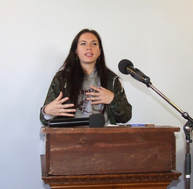 The New Wark Times: News from the Margins Posted October 2, 2017 by Bruce Wark Mi’kmaq activist calls for broad alliance using treaty rights to fight climate change Rebecca Moore A Mi’kmaq woman from the Pictou Landing First Nation says indigenous treaties can be a key tool in the fight against climate change. Rebecca Moore was speaking yesterday at the conclusion of a thinkers conference on climate change in Pugwash, Nova Scotia. The last day of the conference coincided with the October 1st anniversary of the 1752 Treaty of Friendship and Peace between the Mi’kmaq and the British Crown. Moore, who is a community energy campaigner with the Ecology Action Centre in Halifax, said the treaty can form the basis for an environmental alliance between indigenous and settler communities. “We can use the position that indigenous people have the inherent rights to the land and to protecting the land,” Moore said, “to keep it safe and to protect it.” She added, for example, that treaty rights can be used to challenge companies that damage the environment when they extract resources from Crown lands. Treaty rights can also be used, she said, to reclaim Crown lands for better uses, but the key is to use these rights as part of a broader alliance. “I can go and assert my rights as much as I want, but without support from allies it’s probably too difficult to create the significant change that we would need.” Drawdown project Moore was one of 22 participants at the three-day conference. Another was Leon de Vreede, who has worked for nearly 10-years as a sustainability planner for the Town of Bridgewater, Nova Scotia. At yesterday’s closing session, he echoed Rebecca Moore’s message about forming environmental alliances as part of our “last chance” to avert the threat posed by climate change. “The synergy that’s possible by having our mainstream Canadian society working hand-in-hand with our First Nations partners, the synergy that can arise from that, is really, really incredible,” de Vreede said. He referred to the Drawdown Project, a global plan that outlines 100 solutions designed to reverse the buildup of atmospheric greenhouse gases within 30 years. (The Drawdown Project and the book based on it served as a framework for the Pugwash conference.) “I also think that doing the Drawdown work may be our last chance to get some of our social justice issues right in our communities,” de Vreede said. “We could actually liberate a whole bunch of resources and a whole bunch of energy, that if we design it right, can bring people to a more equal footing in our society,” he added. Later, during an interview, de Vreede said Bridgewater has undertaken a wide range of projects designed to curb greenhouse gas emissions including a home energy program in which the town provides money for upgrades that homeowners can repay over a long period at low interest rates. Leon de Vreede 60th anniversary This year’s conference was held to coincide with the 60th anniversary of the first conference at the Pugwash Thinkers Lodge. It was the brainchild of Cyrus Eaton, a wealthy American businessman who was born near Pugwash. The 22 participants in 1957 discussed the threat posed by nuclear weapons to human survival. Cathy Eaton, granddaughter of Cyrus Eaton who attended this year’s conference along with her brother John, said climate change represents another such threat. She added that the focus on community solutions at this conference made Pugwash an especially appropriate place to hold it. “Back in 1957, the community of Pugwash made a huge difference in welcoming the people, inspiring them to trust each other and to have conversations,” she said. “I think the whole idea of this conference is that you’re looking at the communities from the Maritimes to come together and make change and have conversations and know that…each community can make a difference and that there’s an awful lot to be done. If it isn’t done, it can spell the end of the world as we know it.” John and Cathy Eaton, grandson and granddaughter of Cyrus Eaton
|
Cathy EatonPlease contact Cathy Eaton at Eatonmurph@aol.com if you want to share some stories. Please post your stories or memories that relate to Thinkers Lodge, the Dining Hall (Lobster Factory), Joseph Rotblat, the Conference Participants, Cyrus or Anne Eaton, or Eaton Park. Archives
January 2022
Categories
All
|
| Thinkers Lodge Histories |
|
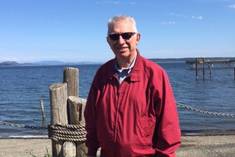

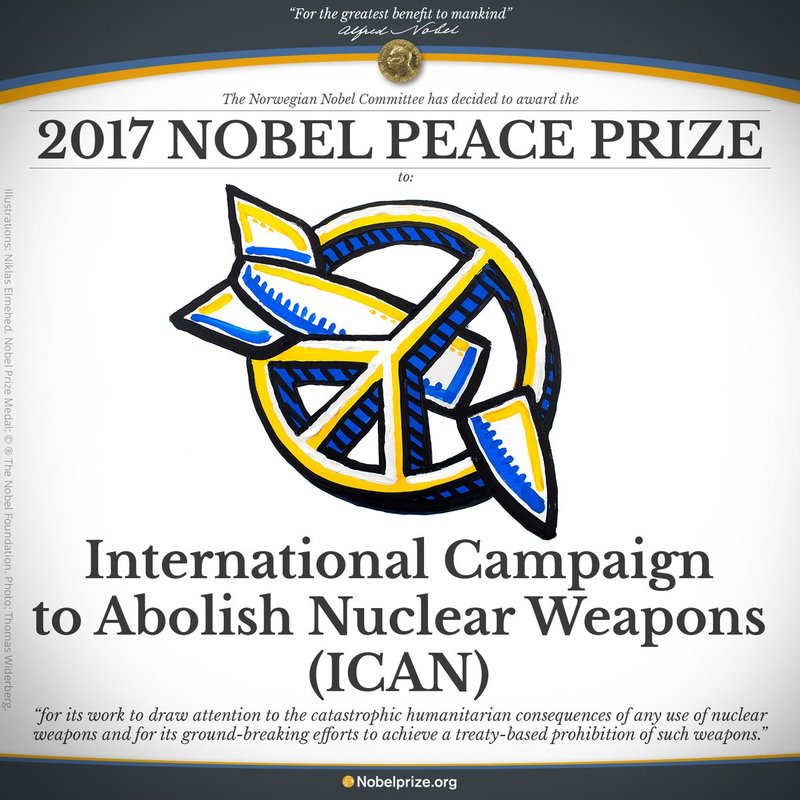

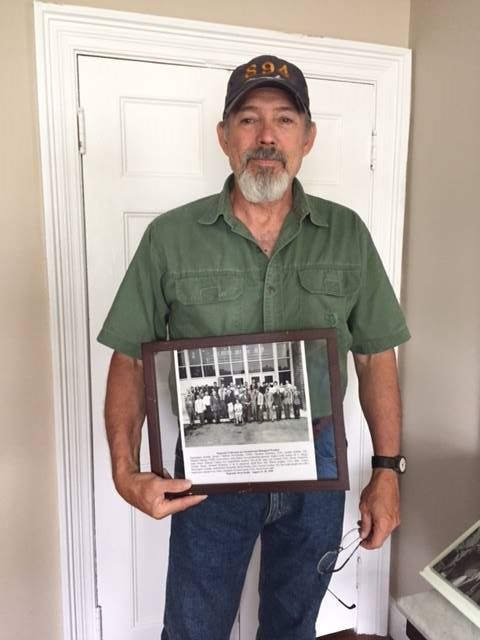
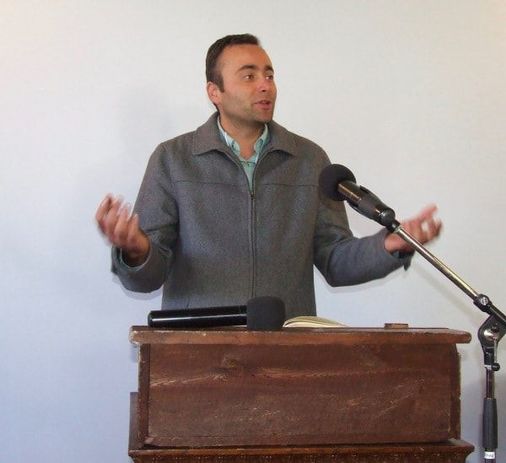
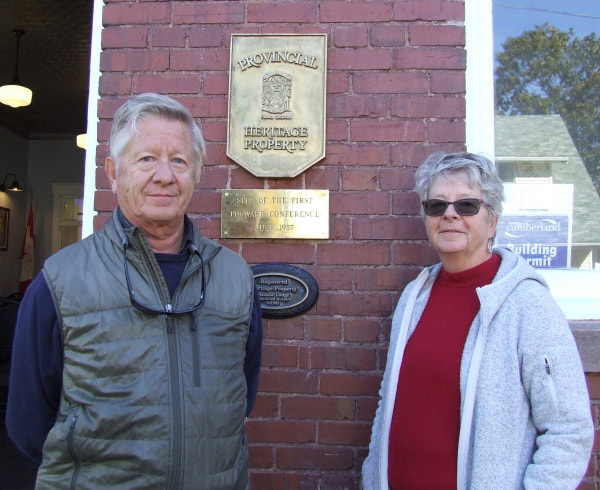
 RSS Feed
RSS Feed